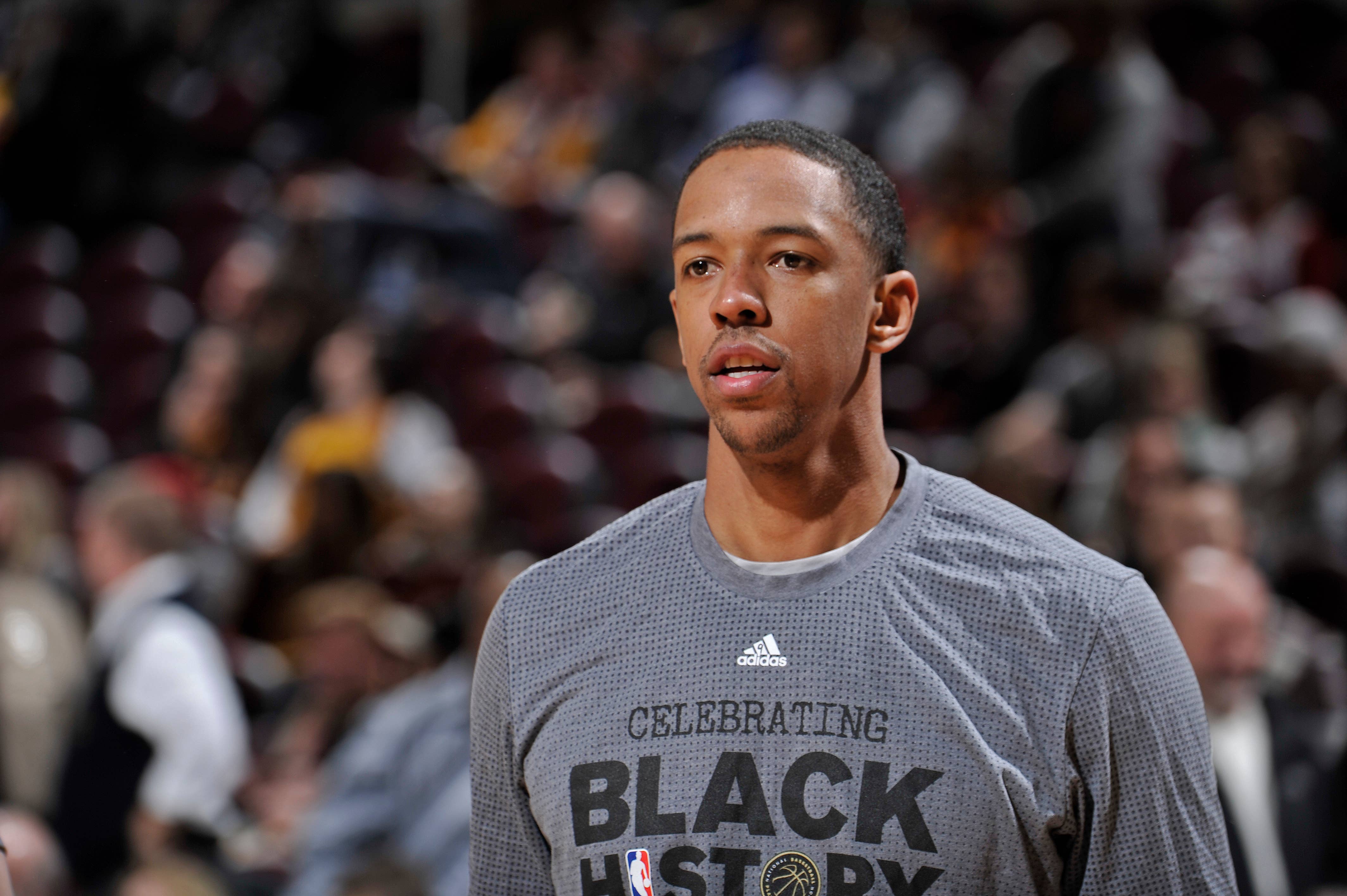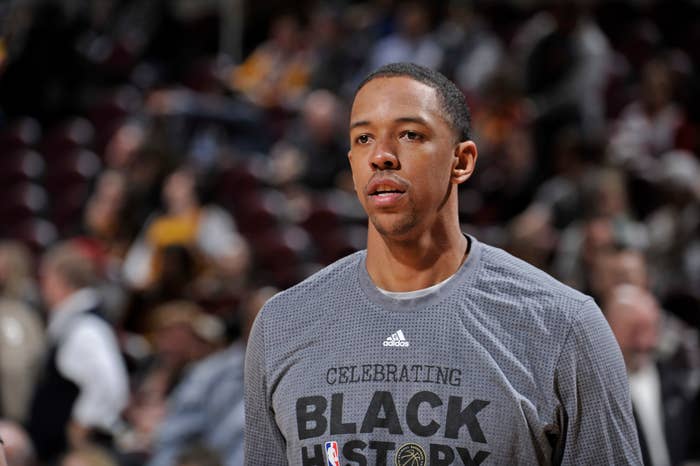
Channing Frye makes it his mission to come at the game of basketball with a healthy, cheerful attitude. While his role on the Cav’s current roster sees him sitting on the sidelines for the foreseeable future, Frye is still the first to brag about his teammates and champion their abilities, even recently going on record saying how his new teammate Derrick Rose has been playing phenomenally in practice, explaining it akin to “BBQ chicken every day.” A testament to his vocal nature, Frye hosts the Road Trippin’ podcast where he dishes on the daily life and inner workings of the Cavaliers. While originally co-hosting the show alongside his buddy and Cav-turned-Nugget Richard Jefferson, Frye will continue the show in his former teammate’s absence alongside Cavs sideline reporter Allie Clifton and Spanish radio announcer Rafael Hernandez Brito.
But it hasn’t always been easy for Frye to remain open about his experiences and in optimistic spirits. A double punch at the end of 2016, Frye lost both his mother and father within months of each other–the former to cancer, the latter to a dilated cardiomyopathy. Unable to process his grief, Frye became engulfed in a deep depression and his basketball game began to slip. Taking this past summer to train and simultaneously give himself room to process his feelings, the 34-year-old now has a better perspective on what he can take out of that tragic period of his life and how he can move forward as a better man and as a better father.
Complex and Well Being Trust recently caught up with Frye in his home in Cleveland to talk about his losses, how he was able to pull himself up from despair, and why he’s confident that this season is going to be the Cav’s best season yet, with or without him.
(This interview has been edited and condensed for clarity.)
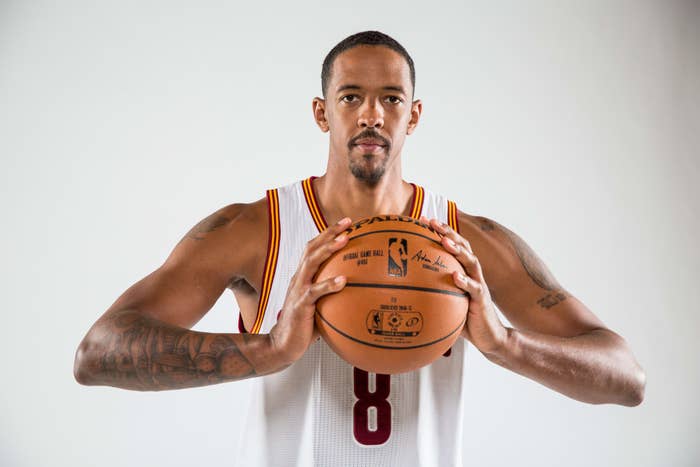
Why did you first decide to open up about your struggles with depression?
The biggest thing for me was just being able to be comfortable with the situation as much as possible, telling my story and normalizing it which is kind of hard because nobody thinks about these things until they happen. For me, it felt good to talk through my emotions: to talk through how I felt and how it affected me and how I can be vulnerable. In my situation [playing in the NBA], a lot of guys are happy all the time. We live great lives. We do what we love to do. We’re paid nice. But life also happens. I just wanted to show who I really was: that I am vulnerable, I am upset, I am sad. I do cry and I do miss them.
When did it get to the point where you needed to take a step back from what you were doing?
I’m pretty good at hiding things but I didn’t know until the season was over how emotionally exhausted and how broken I really was. I’ve spent a lot of time over the summer talking to professionals and being able to adjust and to be able to let go of some of the things that I felt. As professional athletes, we’re suppose to tuck emotion down away and you get used to that because in a game, you may not like a play, but you have to let that go and continue moving on. Real life is different. What worked for me was just having a time and a place to be emotional and to open up about how I felt and to acknowledge that I’m not okay. Some serious crap went down and I need to be around a good positive situation for me to continue to be successful and to be okay with not being okay.
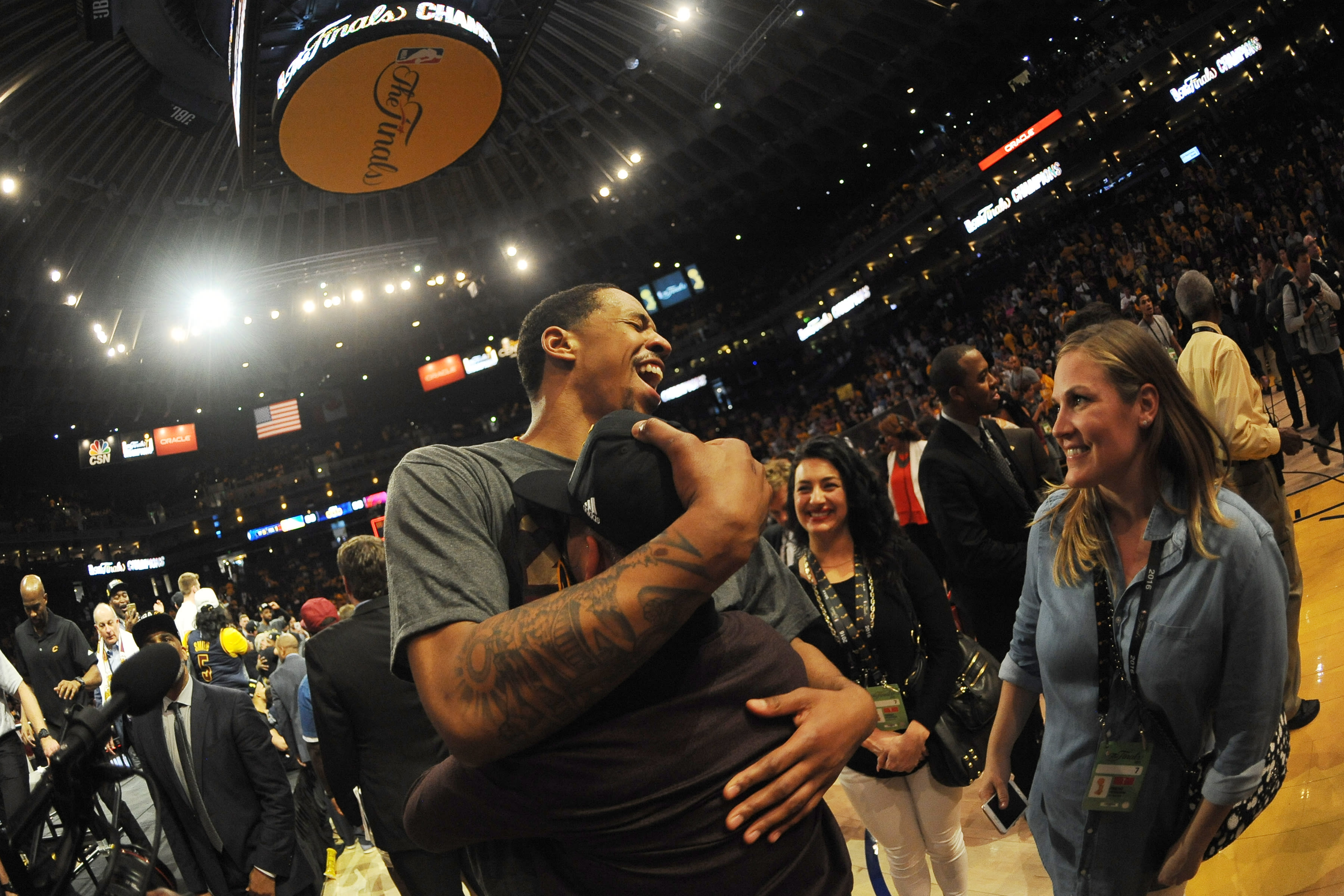
Do you find NBA fans to be sympathetic to your situation?
Yes and no. I just think they don’t understand. The way that athletes have been viewed for so long, it’s like, ‘listen, no matter what’s going on in your life, you come out here, you do your job, and then you go back home.’
It’s hard when you can’t get out of bed, or when you can’t enjoy the little things, when you know you should; when you’re around people that you love but you don’t feel the love, when you’re doing things that you like, that you should be proud of yourself for, but you know you’re not; when it’s just like a funk. Your body aches, your mind aches, and for me, that’s how it was. It was like, no matter how much I stretched or warmed up, I still was stiff, I still felt broken. I can attest for people when they start to feel like that, even if you may think you’re okay, go see somebody; talk to somebody. You may learn something about yourself that you didn’t know and you can avoid that situation from getting deeper. Luckily my friends got me from doing this, but moving into substances to mask it or to hide it or to not feel it. I think sometimes you have to feel all that grunge, that pain, that hurt, and that way you can acknowledge it and that way you can address it and let it go.
Did you have a place to go to or activity that helped you through your situation?
For some people it might be on the treadmill, or listening to a certain song. For me, it was my 35 minute drive to practice everyday. That was my time to have conversations just me in the car and my music. There are certain songs that I listen to that mean a lot to me. They put me into that vulnerability mode because they were the songs that I was listening to during my moments there at the funerals.
After my mother’s funeral, I had to take a train to Washington D.C.. The train attendant came by to give me a soda and saw me losing it. I was like ‘sorry, I just came from my mom’s funeral, would you mind giving me a second?’ She was the nicest lady in the world. I think that hour and a half train ride I literally was sobbing the whole time, I had to be strong for my brother and for my family and stuff like that, but that was my time to really like just be like ‘this sucks.’
When I feel like I need to address those feelings, I turn this music on and I go to that place. I’m okay with that. I’m okay with feeling vulnerable. Vulnerability is tough, especially being a man. I had a heart issue, and a lot of it was caused by stress and anxiety. I know that my father had really high anxiety too.
How did your parents treat vulnerability?
My dad was an old school guy, but my mom was very much like ‘you feel what you need to feel.’ Of course, you’re going to take after your dad too. Once I got older, I understood that even he was dealing with stuff incorrectly and it affected his health and his personality.
When I deal with my son, my wife and I definitely take the time to make sure that he feels comfortable in every situation. The communication needs to be there. I think my wife has done a great job at really getting good at being able to communicate with our children.
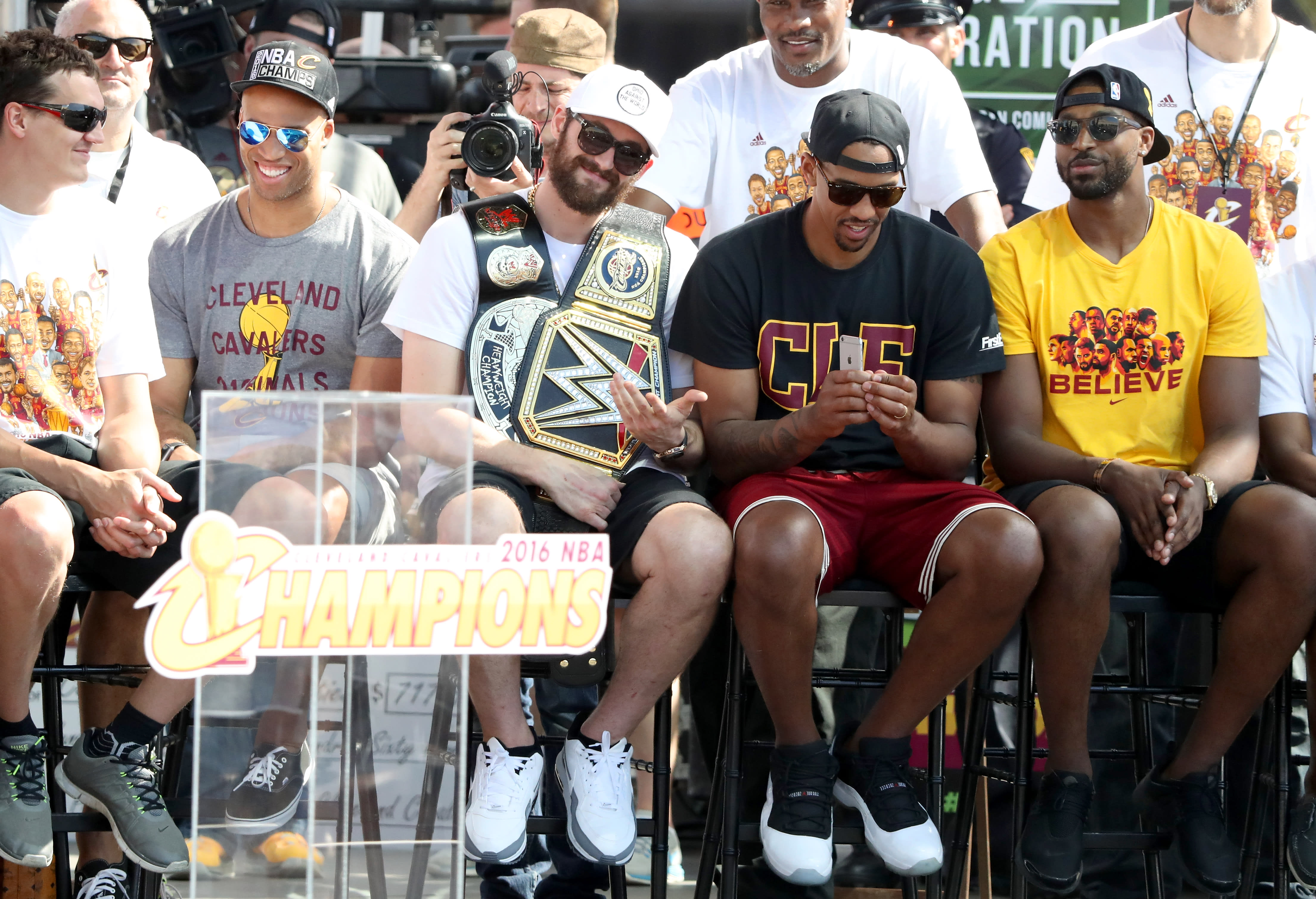
How were your teammates during this period?
Those guys really understand me. Richard, LeBron, Kevin, James Jones, Tristan Thompson, J.R., they understand who I am on a daily basis, they know when I’m just not me that day, and they know how to get me back to being me, to remember that this is fun.

